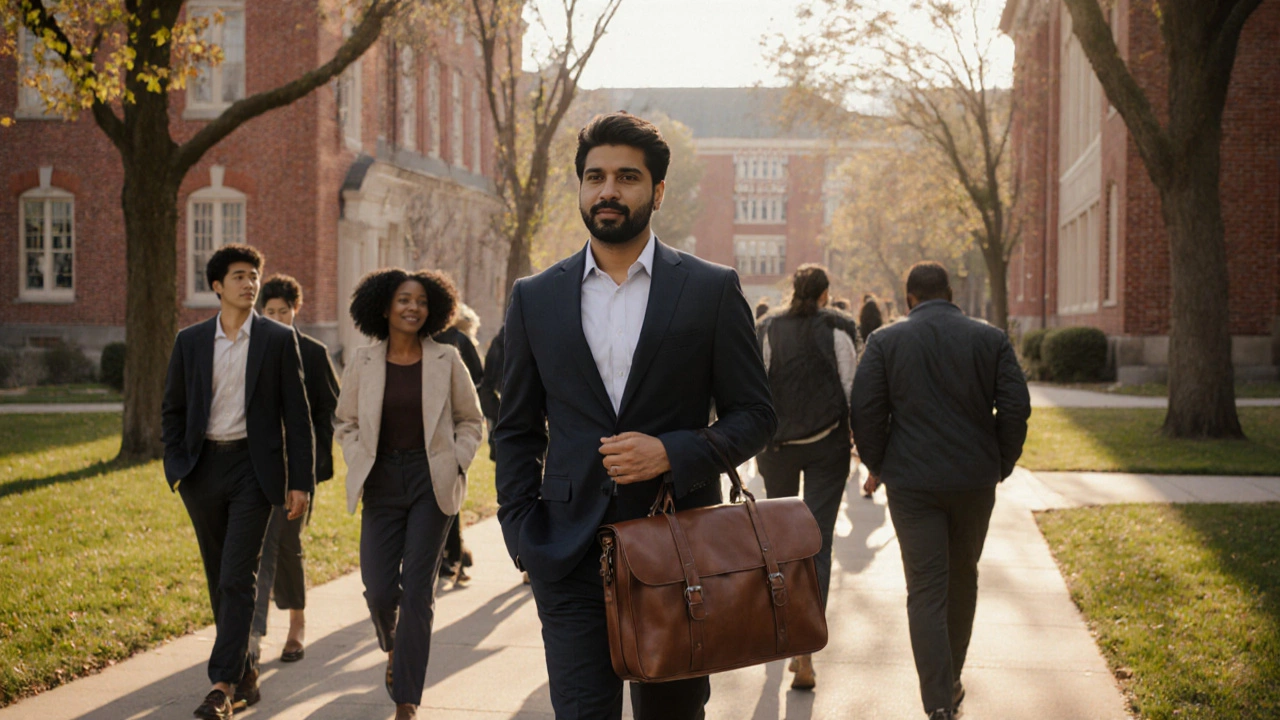Harvard MBA Age: Understanding the Age Factor in HBS Admissions
When considering Harvard MBA age, the typical age range and any formal age limits for Harvard Business School’s MBA program, most applicants wonder if there’s a hard cutoff. Also known as HBS age requirement, it isn’t a rule written in stone but a factor that intertwines with work experience, the years spent in professional roles before applying and the GMAT score, the standardized test that gauges quantitative and verbal skills. Understanding how these pieces fit together helps you plan a realistic timeline for your application.
The average Harvard Business School, one of the world’s most selective graduate business schools class sits between 26 and 30 years old. That range reflects a blend of fresh graduates, mid‑career professionals, and a few senior leaders. While there’s no official minimum or maximum, the school looks for a balanced cohort where age adds depth to classroom discussions. If you’re 22, you’ll likely need standout achievements or an accelerated career path to match the profile of a 27‑year‑old peer. Conversely, applicants in their late 30s often bring rich leadership stories that offset a higher age, as long as the rest of their profile aligns with HBS’s standards.
How Age Connects With the MBA Program and Admission Criteria
The MBA program, a two‑year, full‑time, case‑method curriculum at Harvard values diversity of experience over a strict age metric. Admission criteria include academic record, leadership impact, and personal narrative. Age becomes a proxy for experience: it signals how much time you’ve had to develop leadership, manage teams, and drive results. The admissions committee weighs this against quantifiable metrics like GPA and GMAT score, typically above 730 for competitive candidates. A higher GMAT can offset a younger profile, while a mature applicant might lean on a robust career trajectory to compensate for a modest test result. In short, age interacts with both qualitative and quantitative elements of the application.
Beyond the numbers, the cultural fit matters. HBS seeks candidates who will contribute to a dynamic learning environment, and age diversity fuels that goal. Younger students bring fresh technological perspectives, while older candidates often share lessons from large‑scale initiatives and global markets. This blend enriches peer learning and mirrors the real‑world business landscape. If you’re planning your application, think about where you sit in the typical age spectrum and ask: what unique viewpoint do I add? How can I illustrate that my age, whether early or later, strengthens my potential to lead? The answers you craft will shape the narrative that ties together your age, experience, and ambition.
Armed with this context, you’re ready to dive into the articles below. They break down everything from how to position a younger profile to strategies for senior applicants, explore average age statistics for recent HBS cohorts, and offer practical tips on leveraging work experience and test scores. Use the insights to calibrate your timeline, sharpen your story, and make the most of the age factor in your Harvard MBA journey.
- October
10
2025 - 5
Is 35 Too Old for a Harvard MBA? What You Need to Know
Find out if being 35 hinders your chances at Harvard MBA, learn class age stats, boost your application, and explore executive alternatives in this detailed guide.
Read More